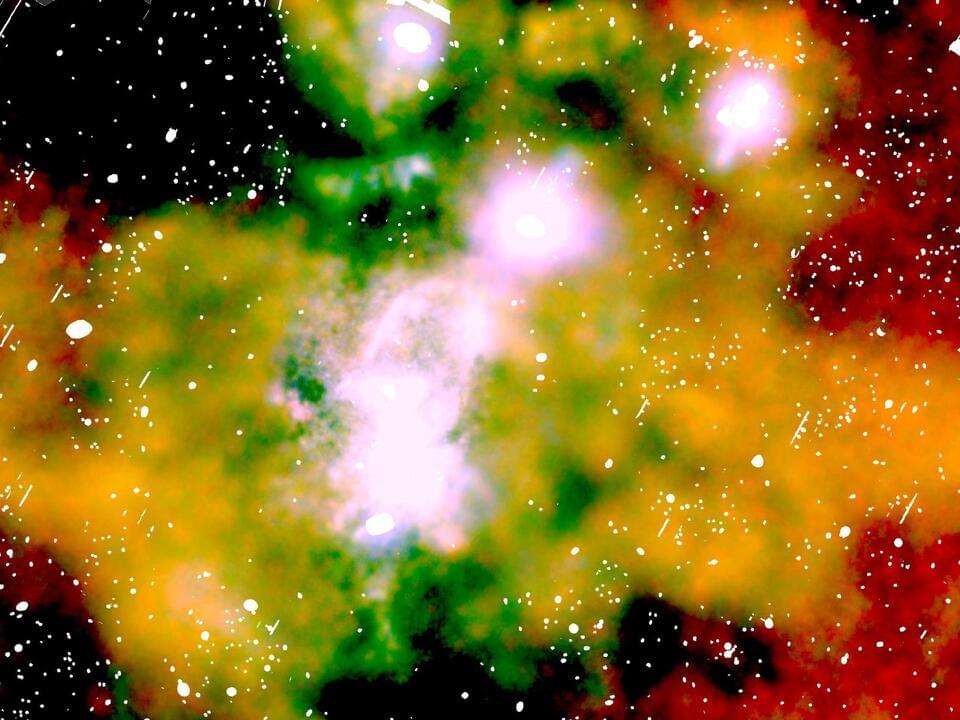— What’s the biggest black hole in the universe?
LISA will consist of a trio of satellites orbiting the sun that will constantly monitor the distances among them. When a gravitational wave comes by, the satellites will detect the telltale signature, like buoys in the ocean recognizing a passing tidal wave.
To search for IMBHs, the astronomers have to hope for a lucky break. If an IMBH in the galactic center happens to capture a wandering dense remnant (like a smaller black hole, a neutron star, or a white dwarf), the process will emit gravitational waves that LISA can potentially detect. Because the IMBH itself will be orbiting around the central supermassive black hole, these gravitational waves will undergo a Doppler shift (like the shifting in frequencies from a passing ambulance) due to the IMBH’s motion.










Comments are closed.